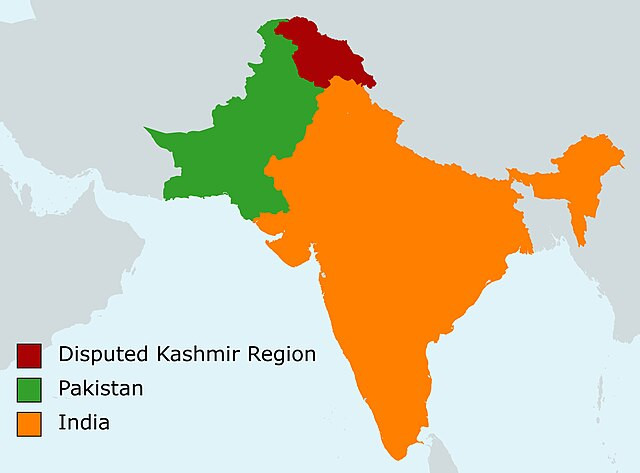India and Pakistan have entered their most severe diplomatic standoff in years after a deadly militant attack in Kashmir killed 26 people, prompting retaliatory measures that included suspending visas, scaling back diplomatic staff, and halting key bilateral agreements.
The Indian government on Wednesday announced it would revoke all visas issued to Pakistani nationals effective Sunday and ordered those already in the country to leave upon expiration of their permits. New Delhi also suspended the 1960 Indus Water Treaty and moved to close the only operational land border crossing with Pakistan.
In response, Pakistan's National Security Committee, chaired by Prime Minister Shehbaz Sharif, warned that any attempt to disrupt the water-sharing agreement would be considered "an act of war" and vowed to respond "with full force across the complete spectrum of national power."
The attack in Kashmir, which targeted tourists in the Pahalgam region, was the deadliest against civilians in the disputed territory in years. While New Delhi blamed "cross-border elements," it did not provide public evidence of Pakistan's involvement. A previously unknown group, the Kashmir Resistance, claimed responsibility. Islamabad denied any connection.
"We will pursue them to the ends of the earth," Indian Prime Minister Narendra Modi declared during a Thursday rally. Indian Defense Minister Rajnath Singh stated that those behind the attack would be found, including "those who conspired to commit this nefarious act."
Pakistan, meanwhile, expelled Indian military attachés, closed its airspace to Indian aircraft, and canceled all bilateral trade. "India has not given any evidence," Pakistani Foreign Minister Ishaq Dar said. "This is not a serious approach. They started creating hype immediately after the incident."
The Kashmir region has long been a flashpoint between the nuclear-armed neighbors. Both countries claim it in full but govern different portions. Modi's 2019 revocation of the region's semi-autonomous status already intensified tensions, though a 2021 ceasefire had largely held.
Diplomatic fallout extended to cultural and religious ties. Pakistan revoked SAARC visas for Indian nationals, excluding Sikh pilgrims, and ordered a reduction in diplomatic staff at both embassies from 55 to 30.
India's suspension of the Indus Water Treaty marked a significant escalation. The treaty, brokered by the World Bank, governs use of crucial river systems flowing from India to Pakistan and has survived wars and hostilities for more than six decades.
India's move on the Indus Water Treaty "will impose costs on Pakistan's economy," said Ashok Malik, a former Indian foreign ministry advisor. Pakistan's Foreign Ministry warned that stopping or diverting water would trigger a full-spectrum response.
Street protests erupted in Pakistan as demonstrators condemned India's move. Meanwhile, in Kashmir, residents-who rarely protest militant attacks-took part in candlelight vigils and shuttered businesses in outrage over the killings.
On the diplomatic front, Pakistani officials warned that the moves threaten all existing bilateral agreements, including the 1972 Simla Agreement. Defense Minister Khawaja Asif stated that India's allegations were "inappropriate," and said, "We strongly condemn terrorism."
India's aggressive posture has fueled speculation of military retaliation, with parallels drawn to the 2019 Balakot air strikes. "(India's) military strategists believe there is a space for kinetic conventional action under the nuclear umbrella," Malik said.
Security analysts caution that both nations may be underestimating the risks. "Indian aggression could lead to an irresponsible situation. Both of us should act carefully," a Pakistani security official told Al Jazeera.
Despite talk of military readiness, some experts urged a return to diplomacy. Former Pakistani Foreign Secretary Salman Bashir said, "The pendulum has swung too far. We need to do whatever is necessary to bring things under control."






